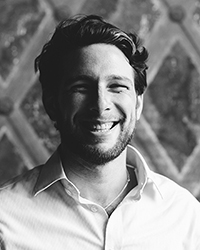
Time to explore post COVID emerging trends in our cities - by Eric Goldman

Ankura Consulting Group
As we enter into spring, some consider this season a universal symbol of rebirth, awakening, and change, not to mention taxes, and of course baseball opening day! Except for many of us the mention of baseball opening day is a nostalgic reminder that since 2017, the Bridgeport Bluefish are no longer playing games at The Ballpark at Harbor Yard.
Instead of renewing the Bluefish contract, Bridgeport’s mayor Joe Ganim, capitalizing on economic and urban development trends, partnered with Live Nation to turn the venue into a 7,500-seat, 21-suite amphitheater with plans to host 25 concerts a season as well as up to 50 other events. Estimates have put the economic impact at over $50 million per year, including, as part of the joint venture agreement, a 40-year commitment where Bridgeport will receive a minimum annual rent of $150,000 and a portion of ticket sales revenue.
And then in late 2019 and into 2020 the news broke that Major League Baseball (MLB) was restructuring/ downsizing their minor league markets. So even with COVID impacts delaying the official opening until this May, the newly named Hartford Healthcare Amphitheater is slated to be an economic boom and additional anchor to Bridgeport’s continued redevelopment. This development project is positioned to succeed based on the vision, good timing, and effective public-private joint execution.
We look to our leaders in both the public and private sector to sometimes “read the tea leaves” and capitalize on emerging trends. This is not always so easy as trends can shift suddenly, like with COVID, while development project timelines from concept to fruition take years. How will public gatherings and events be held moving forward and will these spaces still be the anchors for equitable economic development in our urban fabric? In New York, that question can be asked regarding the future of the Westchester County Center, Rye Playland, and the Empire City Casino. Is the remote work lifestyle shift here to stay and what is the future of transit-oriented development if commuting norms shift? Can cities and towns in Westchester and Fairfield County continue to expect an influx of people from New York City and how best should development plans be modified accordingly?
This spring truly has a sense of reawakening as it appears a corner is being turned against COVID. It is an opportunity to be intentional and proactive in how we implement lessons learned and best practices into how we grow and develop our cities. Since I believe our built environment reflects our society’s priorities – our social compact – now is the time to swing for the fences and not let this opportunity for positive growth and development pass us by.
On May 13th, regional public and private sector leaders will come together virtually to discuss how our region is responding to the post-COVID trends. Topics include how we live, work, play, and interact with our building environment and what will affect future development in the next 5 years. You can learn more about the virtual program “2021 Fairfield County Owners’ Forum: Emerging Trends” and register at www.construction.org.
Eric Goldman is a member of the Construction Institute and is a senior director of the construction disputes & advisory practice with Ankura Consulting Group, Washington, DC.